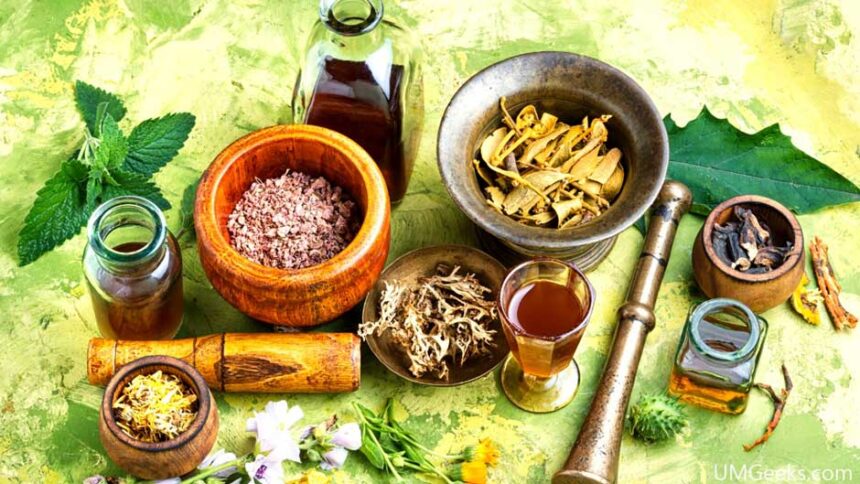Herbal supplements have surged in popularity, captivating the health-conscious consumer with promises of wellness and vitality. As people increasingly turn to nature for solutions, a shadowy underbelly has emerged: scams lurking behind glossy labels and enticing claims. The term “herbciepscam” is becoming all too familiar as consumers navigate this complex landscape.
In 2025, understanding how to distinguish between genuine herbal products and fraudulent ones is more critical than ever. With so many options flooding the market, it’s easy to get lost among the noise. This guide aims to arm you with essential knowledge about spotting these scams while helping you make informed choices on your health journey. Join us as we delve into the world of herbal supplements—together, we can keep those scammers at bay!
The Rise of Herbal Supplements
The rise of herbal supplements can be traced back to an increasing desire for natural health solutions. People are becoming more aware of the benefits that nature provides, seeking alternatives to pharmaceutical options.
Social media and wellness influencers have played a significant role in this trend. They promote holistic lifestyles, making herbal remedies appealing not just for physical health but also for mental well-being.
As scientific research continues to validate the therapeutic properties of various herbs, consumers feel empowered. This wave has led to a vast array of products on shelves—everything from adaptogens to detox teas.
However, this explosion in popularity comes with its challenges. With countless brands emerging daily, distinguishing between effective formulations and mere gimmicks is crucial. Understanding the landscape will help you navigate through enticing claims and find what truly works.
Understanding the Current Regulations and Industry Standards
The herbal supplement industry operates in a complex regulatory landscape. Unlike pharmaceuticals, these products face less stringent oversight from agencies like the FDA. This can create confusion for consumers.
Current regulations require manufacturers to ensure their supplements are safe and labeled correctly. However, there’s no pre-market approval process for most herbal products. This means that companies often self-regulate.
Many rely on Good Manufacturing Practices (GMP) to maintain quality standards. These practices help minimize contamination and ensure consistency in production.
Despite these guidelines, some manufacturers cut corners or make exaggerated claims about their products’ benefits. Thus, it’s crucial for consumers to stay informed about what constitutes legitimate certification and testing processes.
As awareness grows around herbciepscam issues, more organizations advocate for clearer regulations and stricter enforcement within the industry. Understanding this framework can empower you as a consumer to make smarter choices when selecting herbal supplements.
Common Scams to Look Out For
When it comes to herbal supplements, the landscape is riddled with deceit. One common scam involves companies selling products that claim miraculous health benefits without any scientific backing. These bold promises often lure consumers into a false sense of security.
Another red flag is the use of fake testimonials or misleading endorsements. Scammers frequently create convincing stories from “satisfied customers” to boost credibility, but these reviews can be completely fabricated.
Additionally, some brands might offer free trials that require credit card information. After the trial period ends, unsuspecting users find themselves charged for recurring shipments they never wanted.
Be wary of aggressive marketing tactics too. If a company pressures you to buy immediately or suggests limited-time offers, it’s wise to step back and evaluate their legitimacy carefully. Always take your time when considering an investment in your health.
Tips for Spotting a Legitimate Herbal Supplement Company
Look for transparency. A legitimate herbal supplement company will provide clear information about their ingredients, sourcing, and manufacturing processes. Check if they have a detailed product label that highlights active components.
Third-party testing is crucial. Reputable brands often submit their products to independent labs for verification. Look for certifications or seals of approval on the packaging.
Research customer reviews and testimonials. Genuine feedback from users can reveal much about a company’s credibility. Watch out for suspiciously positive reviews that seem too good to be true.
Check for proper certifications, such as Good Manufacturing Practices (GMP). These indicate that the company adheres to industry standards in production.
Avoid companies making extravagant claims or promises of miraculous results. If it sounds unbelievable, it likely is. Stick with businesses grounded in science and reality rather than hype.
How to Protect Yourself From Falling for a Scam
To protect yourself from falling victim to herbal supplement scams, always do your research. Look for third-party testing and certifications. A reputable company will proudly display these credentials.
Read reviews and testimonials, but be cautious. Fake reviews are common in the industry. Seek out unbiased sources that provide honest evaluations of products.
Check the ingredient list carefully. Familiarize yourself with what should be included in a legitimate herbal supplement. If you see vague terms or excessive fillers, steer clear.
Be wary of miracle claims that sound too good to be true. Genuine supplements improve health gradually; they don’t promise instant results or cure-all solutions.
Consult healthcare professionals before trying new products. They can offer valuable insights into safety and efficacy based on your individual needs and conditions.
The Future of Herbal Supplements: Potential Changes in Regulations
The landscape of herbal supplements is poised for transformation. As consumer awareness grows, so does the demand for safety and efficacy in these products.
Regulatory bodies are beginning to take a closer look at how herbal supplements are marketed and sold. This scrutiny could lead to stricter guidelines aimed at protecting consumers from misleading claims.
Innovations in technology may play a role as well. Advances in testing methods can improve quality control, ensuring that what’s on the label matches what’s inside the bottle.
Furthermore, collaboration between manufacturers and regulatory agencies might become more common. Sharing best practices could foster an environment where compliance becomes standard rather than exceptional.
As these changes unfold, consumers will likely benefit from clearer information about their choices. Enhanced transparency will empower individuals to make informed decisions regarding their health and wellness journeys.
Conclusion
As we navigate the world of herbal supplements, awareness is key. The surge in popularity has brought both benefits and risks to consumers.
Understanding how to identify scams can empower you. Knowledge is your best defense against misleading claims and low-quality products.
Stay vigilant about the brands you choose. Research their credentials, read reviews, and trust your instincts when something feels off.
The industry may evolve with tighter regulations in the future, but personal responsibility remains crucial for every consumer today. Your health deserves careful consideration and trusted sources.
Prioritizing safety will help ensure that herbal remedies contribute positively to wellness journeys rather than detract from them.
faqs
As the herbal supplement industry continues to grow, consumers must stay informed and vigilant. The prevalence of scams targeting unsuspecting buyers is a reality that cannot be ignored. By understanding how to spot these scams and recognizing legitimate companies, you can protect your health and finances.
Here are some frequently asked questions about herbciepscam:
**What are the signs of an herbal supplement scam?**
Look for exaggerated claims, lack of transparency in ingredients or sourcing, and absence of third-party testing certifications.
**How can I verify if a company is reputable?**
Research customer reviews, check for proper certification from regulatory bodies like the FDA or GMP (Good Manufacturing Practices), and ensure they have clear contact information on their website.
**Are there any specific ingredients known to be associated with scams?**
Some popular herbs like kratom and CBD may attract dubious products. Always research individual ingredients before purchasing supplements containing them.
**Can I report suspected herbal supplement scams?**
Yes, you can report suspicious products to organizations such as the Federal Trade Commission (FTC) or your local consumer protection agency.
By addressing these common concerns, we empower ourselves against herbciepscam threats while promoting safer choices in our pursuit of wellness. Remember always to approach new supplements with caution; knowledge is your best defense.






